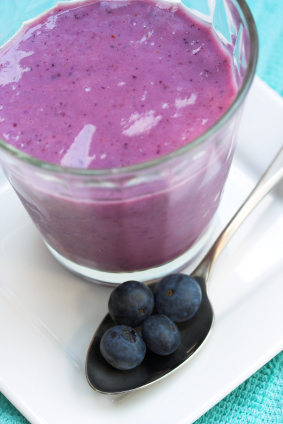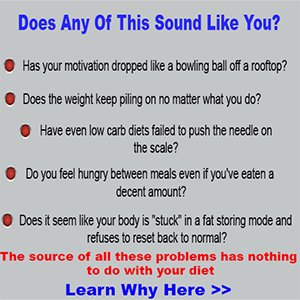How To Protect Your Body's Most Valuable Fat Melting Asset
Guys - have you ever wondered how you could protect as much lean muscle mass as possible and maintain performance during consistently hard exercise sessions or training protocols, when you aren’t able to eat as much food as you expend?
Maybe you’re in the military and don’t have a fridge strapped to your back during long field exercises, or you’re training for an outdoor adventure race and eating isn’t always the easiest.
If only you were able to eat as many calories as you were expending, you wouldn’t have to face this problem because it’s well known that muscle is lost during hard training periods when calories are insufficient.
Regardless, you want to do everything you can to keep the precious muscle that you’ve spent months and years building up. The last thing you want to do is lose all of it and thwart your hard work.

Well, there actually is an answer to your problem -- and it’s probably going to make you very happy.
Intense Exercise Research
Very recently (April, 2011), researchers from the US Army Research Institute of Environmental Medicine in Natick, MA, investigated the effects of hard training in the face of an energy deficit in 26 healthy male athletes for 11 days.
Using very sophisticated blood measuring techniques (infused isotopes), the investigators were able to track exactly how much glucose, glucagon, and insulin was produced by the guys' bodies, and how much muscle glycogen was broken down.
In the study, these well-trained men were kept at the study unit for 11 days, so their exact energy intake and energy output could be tracked.
The men were split into three groups: one group ate an energy-balanced diet moderate in protein (0.9 g/kg bw/day = approximately 73 g protein for a 180 lb guy); another ate a energy-deficient diet moderate in protein; and, the third ate an energy-deficient diet high in protein (1.8 g/kg bw/day – approximately 147 g protein for a 180 lb guy).
For the first 4 days, the subjects ate enough calories to match their energy output. Then, for the last 7 days, they increased their energy expenditure by 1000 calories each day through extra exercise, while only the energy-balanced group also increased their caloric intake to match the calories expended (calorie balance).
[Blood] Sugary Results
After the 11th day, it was found that the group that consumed either enough calories or higher protein was able to maintain normal glucose production rates, and spare muscle protein breakdown to make glucose (via gluconeogenesis), while the low protein diet did not maintain normal glucose production at all.
All groups saw a decline in blood insulin and glucose, while the high protein diet group saw an increase in glucagon (to prevent a serious decline in glucose).
The fact that the guys who ate the higher protein diet were able to maintain internal glucose production during an energy deficit, suggests that protein has the ability to offset the normal drop in glucose production that occurs during inevitable periods of high energy output and deficient calories, particularly if you are trying to also lose weight or excess stored fat.
This also suggests that protein allows maintenance of a man’s metabolic flexibility, which refers to the capacity for a person to adapt fuel oxidation to fuel availability. If you do not have metabolic flexibility, you are more inclined to develop insulin resistance and excessive fat accumulation.
Although performance indices were not measured, this also infers that a higher protein intake during extreme exercise can help maintain consistent performance results. When glucose production is adequate, there is more fuel being delivered to muscles to do the work needing to be done.
Overall, guys: If you’re faced with an energy deficit during long periods of heavy training, protein can be your best friend. Not only will it help you spare muscle protein breakdown to maintain glucose production, but it will probably also help you maintain your activity levels to the highest level possible.

So, protein drinks, eggs, fish, meats, and other high-quality protein sources are very important; and, so is keeping protein intake higher than some of our government agencies recommend - close to at least 1 gram of protein per pound body weight is ideal.
Reference:
High protein diet maintains glucose production during exercise-induced energy deficit: a controlled trial. Smith TJ, Schwarz JM, Montain SJ, Rood J, Pikosky MA, Castaneda-Sceppa C, Glickman E, Young AJ. Nutr Metab (Lond). 2011 Apr 28;8(1):26. [Epub ahead of print]
About Jayson Hunter & Jaylab Pro

Jaylab Pro was founded by Registered Dietitian Jayson Hunter. Jayson has been recognized as one of America's foremost weight loss experts by America's Premier Experts™. He has also been featured in USA Today for this accomplishment. Jayson is also a best-selling author having co-authored multiple books in health & fitness and business growth. Jayson and the Jaylab Pro team are proud to create content that helps improve the lives of millions of people around the world. We hope you enjoy it just as much as others have.
 If you order a JayLabPro SmartShip product or any Combo Package, we will automatically ship you a new supply of the product or products you have ordered every month, starting 30 days after your initial order is shipped, and continuing until you cancel. The credit card you are using today will be billed the lowest available price for those product or products when your order is shipped, but shipping will be FREE. You may log into your customer account or call our customer service department toll-free at 1-888-9GETPRO (1-888-943-8776) between the hours of 8am – 9pm EST Mon-Fri to cancel future shipments, customize the timing of your shipments, or change the credit card used for billing.
If you order a JayLabPro SmartShip product or any Combo Package, we will automatically ship you a new supply of the product or products you have ordered every month, starting 30 days after your initial order is shipped, and continuing until you cancel. The credit card you are using today will be billed the lowest available price for those product or products when your order is shipped, but shipping will be FREE. You may log into your customer account or call our customer service department toll-free at 1-888-9GETPRO (1-888-943-8776) between the hours of 8am – 9pm EST Mon-Fri to cancel future shipments, customize the timing of your shipments, or change the credit card used for billing.









